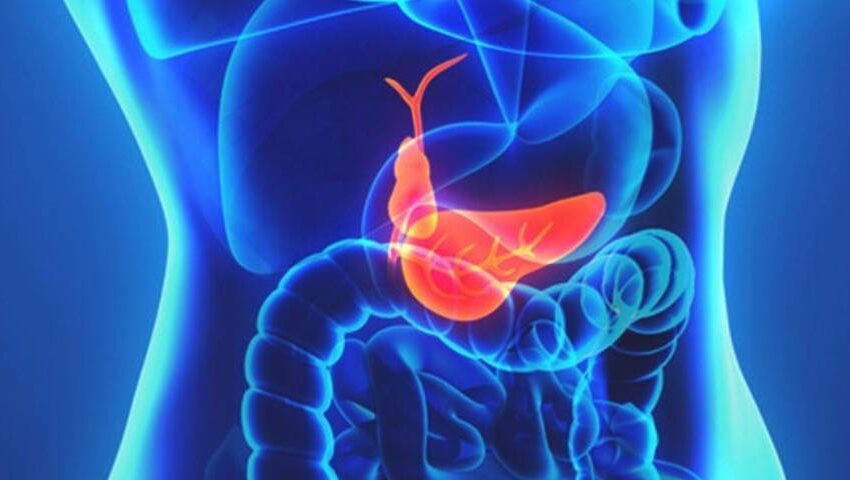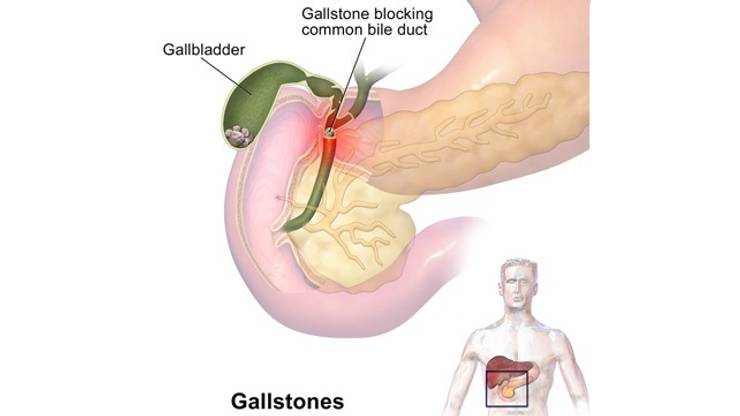
- 23/02/2021
- Dr. Samrat Jankar
- 0 Comments
- Blog
Gallbladder Stones: Everything you need to know
What are Gallbladder Stones?
Gallbladder stones, also known as gallstones, are hardened deposits of digestive fluid that form in your gallbladder. Your gallbladder is like a small, pear-shaped organ on the right side of your abdomen. It is just beneath your liver. The gallbladder contains digestive fluid bile. It is released into your small intestine.
Gallstones come in different sizes. They can be tiny as a grain of sand to as large as a golf ball. People may develop just one gallstone or develop many gallstones at the same time.
People who suffer from symptoms from their gallstones need gallbladder removal surgery. Gallstones that do not cause any signs and symptoms typically do not require treatment.
Gallstones are solid particles of material that form in the gallbladder, which is a small hollow organ under the liver. Gallstones are hard deposits in the digestive fluid that produce gallstones. Many people never experience any symptoms. Gallstones can obstruct the upper bile duct and cause pain.
How do you know that you are having symptoms of gallstones?
Symptoms of Gallstones
Gallbladder stones may cause no signs or symptoms. If a gallstone enters a duct and leads to a blockage, the resulting signs and symptoms include:
- Sudden and quickly intensifying pain in the upper right area of your abdomen
- Sudden and quickly intensifying pain in the middle of your abdomen, just below your breastbone
- Back pain in the middle of your shoulder blades
- Pain in your right shoulder
- Vomiting or nausea
Gallstone pain can last for several minutes to a few hours. However, you might be wondering why do gallbladder stones or gallstones form?
Causes of Gallbladder Stones

It is not clear why gallstones form. Doctors think gallstones may result when:
Your bile contains excess cholesterol :
Usually, your bile has enough chemicals to dissolve the cholesterol excreted by the liver. However, when your liver excretes more cholesterol than your bile can dissolve, the large amounts of cholesterol may form into crystals and ultimately into stones.
Your bile contains excess bilirubin :
Bilirubin is a chemical that is produced when the body breaks down red blood cells. Some conditions cause your liver to make excess bilirubin, including biliary tract infections, liver cirrhosis, and certain blood disorders. Too much bilirubin contributes to the formation of gallstones.
Your gallbladder does not empty correctly :
If your gallbladder does not empty entirely or enough, bile can become very concentrated. It contributes to gallstone formation.
Gallstones can usually be treated either by medications or surgery. We have mentioned both in detail below.
Treatment for Gallstones
Most people with gallstones that do not have any symptoms will never require treatment. Your specialist will determine if treatment for gallstones is necessary according to your symptoms and diagnostic testing outcomes.
Your doctor may suggest that you be aware of gallstone symptoms, such as increasing pain in your upper right abdomen. If gallstone symptoms occur in the future, you can go for treatment.
Treatment options for gallstones include:
1. Surgery to remove the gallbladder (cholecystectomy) :
Your doctor may suggest surgery to remove your gallbladder because gallstones frequently come back. After your gallbladder is removed, bile flows directly from the liver into your small. It does not store in your gallbladder.
You do not require your gallbladder to live, and its removal does not affect your ability to digest food. However, it can cause diarrhea, which usually is temporary.
2. Medications to dissolve gallstones :
Medications you take by mouth can assist in dissolving gallstones. However, it may take months or years of treatment to dissolve your gallstones through medication. Also, they will likely form again if you stop treatment.
Sometimes medicines do not work. Medications for gallstones are not commonly used and are reserved for those who cannot undergo surgery.
If you do not have gallstones or do have them, but not in a large size, we have mentioned how you can prevent them from getting bigger.
Prevention of Gallstones
You can minimize your risk of gallstones if you:
- Do not skip meals
- Lose weight slowly
- Eat more high-fiber foods
- Maintain a healthy weight
You can use preventive measures if you have gallbladder stones without symptoms. But what will it affect your life in the long term?
What can I Expect in the Long Term?
If you require surgery to remove your gallbladder or any stones in your gallbladder, the outlook is usually positive. In many cases of stone removal, stones do not return.
However, if you do not have surgery, the gallstones will return. It is true even if you have taken medication to dissolve the gallstones.
You will not need treatment if your gallstones do not cause symptoms. However, it would be best if you tried some lifestyle changes to prevent them from becoming large and causing problems.
If you require surgery for your gallbladder stones, look for the best gastroenterologist in Pune. They can diagnose and determine if your gallbladder stones need surgery or not.
